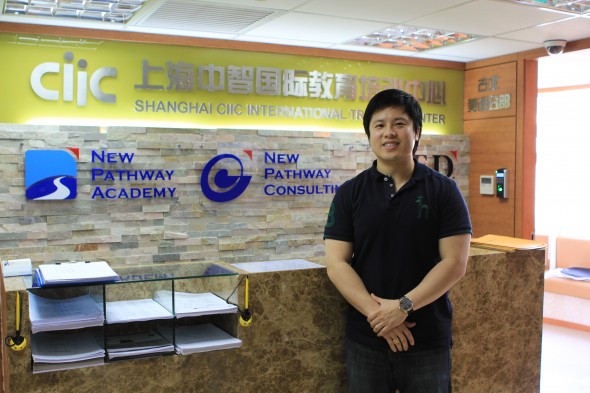
Weekly VentureSquare Stories are summaries of some of the week’s top posts relating to the Korean startup and venture Industry.
Rehoboth Business Incubator assists in gaining Government Financing
Top Korean business center Rehoboth Business Incubator has succeeded in gaining government financial support for several of the companies it is incubating. JungWoo Lee, a director at Rehoboth, announced that four companies in Rehoboth’s program were successful in gaining “young entrepreneurs support financing” from the Small and Medium Business Administration (SMBA). Lee also revealed that one company will receive 40 million won in support and the remaining three receive 50 million won.

It is well known that business centers offer small businesses offices to rent, giving them a place to carry out their business. While there is sometimes other support outside of this, it has never been enough to have real meaning. However, Rehoboth has shown that business centers can act not simply as a space to work in, but can also play a role as a business partner. The support is definitely welcomed by the recipients, as the loan is credit-based and no collateral or other guarantees are requested. The interest rate is also much lower than the open market, at 2.7% per annum with divided payments. While recipients are pleased, it seems that other business centers will be watching the latest development closely.
It can be expected that with this news, other businesses being incubated at similar business centers will also start requesting for support to receive such financial support and responding to this will not be easy. Recently there has been a boom in individual businesses but the truth is that all business centers differ in their capabilities and there are also many differences in the way various business centers operate. Some centers may consider providing support for government sponsored financing to not even be part of their responsibilities. One thing that cannot be ignored is that for young companies it becomes a choice of the difference in benefits for more or less the same rent fees.
New Pathway Academy – Taking on Education in China
Dudu China interviewed Sam Hwang, CEO of New Path Way Education and Technology Group about how he started his business in China.

When you were young you immigrated to the United States. How did you end up starting a company in China?
I went to the U.S. as a seven year old and attended school and university up to post-graduate level. Before going to university I wasn’t interested in China at all but after becoming close with some Chinese friends at MIT I started liking China more. After this I ended up with a Taiwanese girlfriend and traveled with her on a holiday around Taiwan, Hong Kong, Shanghai, Beijing and Seoul. During the trip I saw for myself how fast China was developing and started thinking that I might like to start a business there.
Had you already been preparing an education-related business?
At first I hadn’t thought about education. I simply wanted to come to China and plan what I would do here. To do this I needed to first have a reliable job while I researched the market in China. I happened to get a job in Shanghai at the international division of a high school teaching maths. While working in the education field I found out that there was no proper organization to help students prepare for American universities. Since China’s top education companies were in a poor state I thought that by using my experience and network that starting a business would prove competitive.
Is New Pathway Academy your first business?
During my time at MIT I started a software company with some friends named “Digital Self Corporation”. As a company which offered software that helped place human resources in the right areas of major companies, we even received funding from a Harvard Business School professor. However, the business ended up failing due to a lack of experience after having problems with patents and capital. It was an important lesson for me and I learned how happy one can be having their own business.
Tell us what New Pathway Academy does and who it is aimed at.
After doing some market research I found that there were no academies which helped Chinese students prepare for American Universities. I thought it was a perfect chance and started an academy which helps students prepare for SAT exams. When I first started there were 15 Korean students, and through their good SAT scores I was able to develop my business further. Nevertheless I needed to get Chinese students both from the mainland as well those who had studied overseas. Luckily with the help of others I was able to solve these problems and currently we have four academies in Shanghai and one in Taiwan. Also, we were successful in taking over an education company named Reading Town aimed at elementary students and started a maths academy too. The most encouraging thing is that out of our 1,500 students, 60-70% of the students are Chinese.
Are you preparing an online platform as well?
Of course. We are currently investing a lot in developing online lessons and educational systems for students. We plan to launch the service this coming winter.
In the future where do you plan to place most of your focus?
We plan to focus more on the online aspect but I think our offline activity needs to keep developing too. In the future the balance will be around 75% online and 25% offline. At the moment the infrastructure for online education isn’t perfect but I think that China’s infrastructure for online education will improve significantly in about 3 to 5 years. If you combine offline learning with online learning there is a lot of synergy which can be gained. While online education is growing in South Korea and also developing quickly in the U.S, China is still in the early stages. We will develop a system so students living in the inner regions can have online access to education in real time.
It seems there would be many restrictions on a foreigner doing education-based business in China. What are some of them and how did you overcome them?
That’s a good question. At the moment if you want to start an education related company as a foreigner in China there are a lot of restrictions. As a matter of fact there are only two places that have received special permission from the Ministry or Education and those places are not allowed to be used by Chinese students. In my case, there were a lot of people who helped me get to where I am today. Honestly I think that I have a lot of good luck.
Find out more information about New Pathway Education & Technology Group by visiting their website.
Korea’s Leading Startup OpenIR and Entrepreneur Conference
- Date: May 31st (Thursday)
- Venue: Plaza Hotel, Jung-gu, Seoul
- Host: Maekyung Media Group
- Support: KTOA, VentureSquare
- Sponsors: KT, SKT, LGU+
Featuring:
- IT companies other than mobile-based will be included
- Startups which are up to five years old can apply
- Introduction of a 60 second elevator pitch
- Top Seven Startups to take part in an Upcoming Camp Event